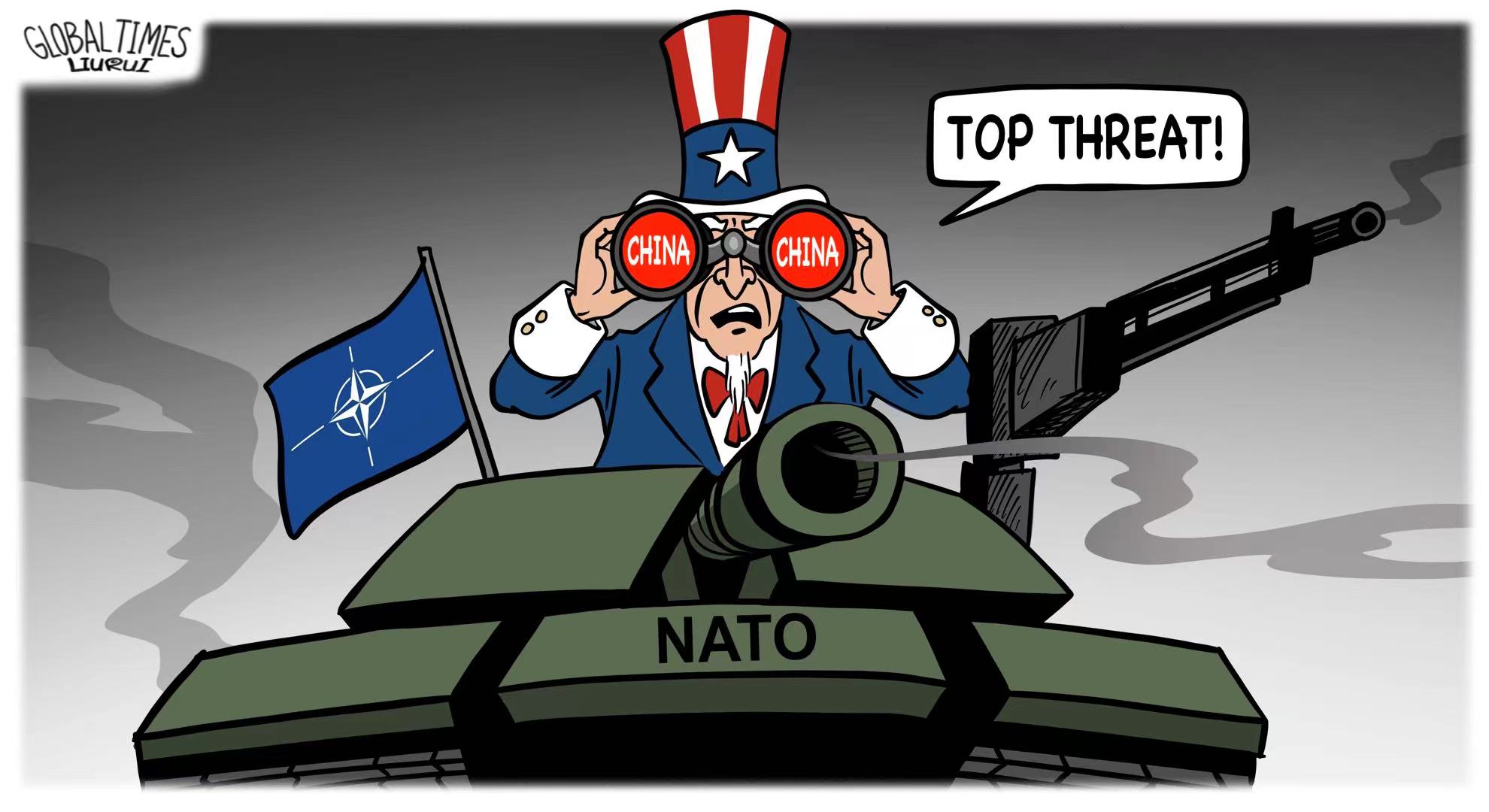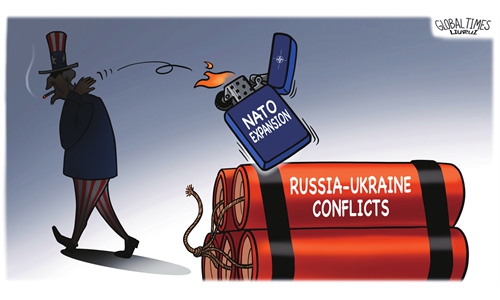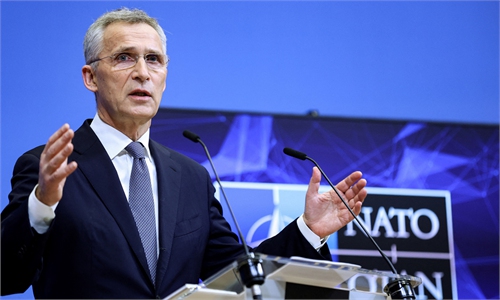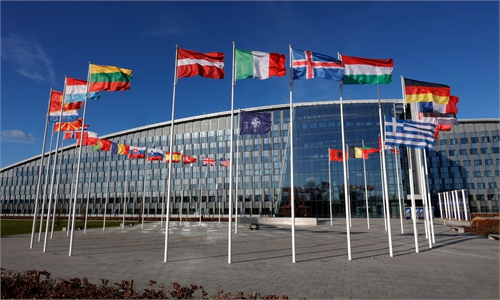Will Stoltenberg ever understand China not colluding with – or bowing to – a hegemonic clique?

Illustration: Liu Rui/GT
When the big brother of a gang grows old and drowsy and struggles to hang on to power, he looks for more enemies to prove the gang still has a purpose.It is happening that the North Atlantic Treaty Organization - under US control - decided to more vocally antagonize a country as far afield as China.
Pretending not to hear China's repeated statements of not taking sides in the NATO-provoked Ukraine conflict, NATO Secretary-General Jens Stoltenberg said Thursday that China's refusal to condemn Russia for "invading" Ukraine, as well as its "questioning the right of nations to choose their own path," is a "serious challenge" to the military alliance.
NATO is making another attempt to drag China into the conflict between Russia on one side and Ukraine and NATO on the other.
Perhaps Stoltenberg should first learn to respect China's path of refusing to collude with - or bowing to - any military and hegemonic organization.
NATO is a US-Europe military organization that aims to resolve security problems on that continent. But China, as an Asian country, has never interfered in any conflict in Europe, nor is it supposed to. It makes no sense for NATO to make China bear its problem - or get punished.
China has also never questioned other countries' right to "choose their own path," because China doesn't interfere in their internal affairs. NATO, through its outdated Cold War lens, is hyping up China as an evil force and forcing European countries to take sides.
Why does NATO care so much about whether China condemns Russia or not? It wants to portray China as an "accomplice to Russian crimes," making it easier to unite members in the alliance, which had already slid into disorientation after the disappearance of its prime enemy, the former Soviet Union.
Regardless of China' intention of staying clear of the NATO's mess, it is clear that China is on the way to becoming NATO's next targeted enemy as the country is not likely to follow this military organization.
The recently concluded NATO foreign ministers meeting invited the US' Asia-Pacific partners Australia, Japan, New Zealand and South Korea, clearly aiming to encircle China. Stoltenberg said that NATO will for the first time consider China in its new defense strategy which will be finalized in June.
The US is trying to use its own growing concerns about the partnership between Beijing and Moscow and Beijing's rapid rise to manipulate its allies, especially those in Europe, to believe that China needs to be dealt with in every possible way.
Stoltenberg's words indicate that NATO is an alliance based on not only geography, but more importantly, on politics and values. This is a very dangerous signal of a serious challenge confronting global peace and stability. It is NATO that keeps on antagonizing anyone that even think differently with it.
The increasingly greedy NATO has extended its tentacles to regions and nations outside Europe and beyond the Atlantic. It seems to be discontented with being just a defense organization in Europe and has an ambition that is not openly stated, which is to go global.
In this process, NATO will try to gain more influence in the political decision making across the global community. It will possibly engage more directly in the affairs of the Asia-Pacific region and exert more presence there. The US' alliance in the Asia-Pacific region, including AUKUS and Quad, will likely work closely with NATO. Eventually, the goal is to form one enormous US-led power mechanism, under which all of the West's "rivals" are targets.
Chinese Foreign Ministry Spokesperson Zhao Lijian commented on Thursday that NATO was "born out of the Cold War and should have long become a past tense." Perhaps it is only to stay alive and stay relevant in the current world for NATO, an organization that should have entered museums, to grow increasingly aggressive and target neutral countries. The sooner the doomsday of this military alliance arrives, the sooner peace and stability can be achieved in the world.
The article was compiled based on an interview with Lü Xiang, a research fellow at the Chinese Academy of Social Sciences. opinion@globaltimes.com.cn



